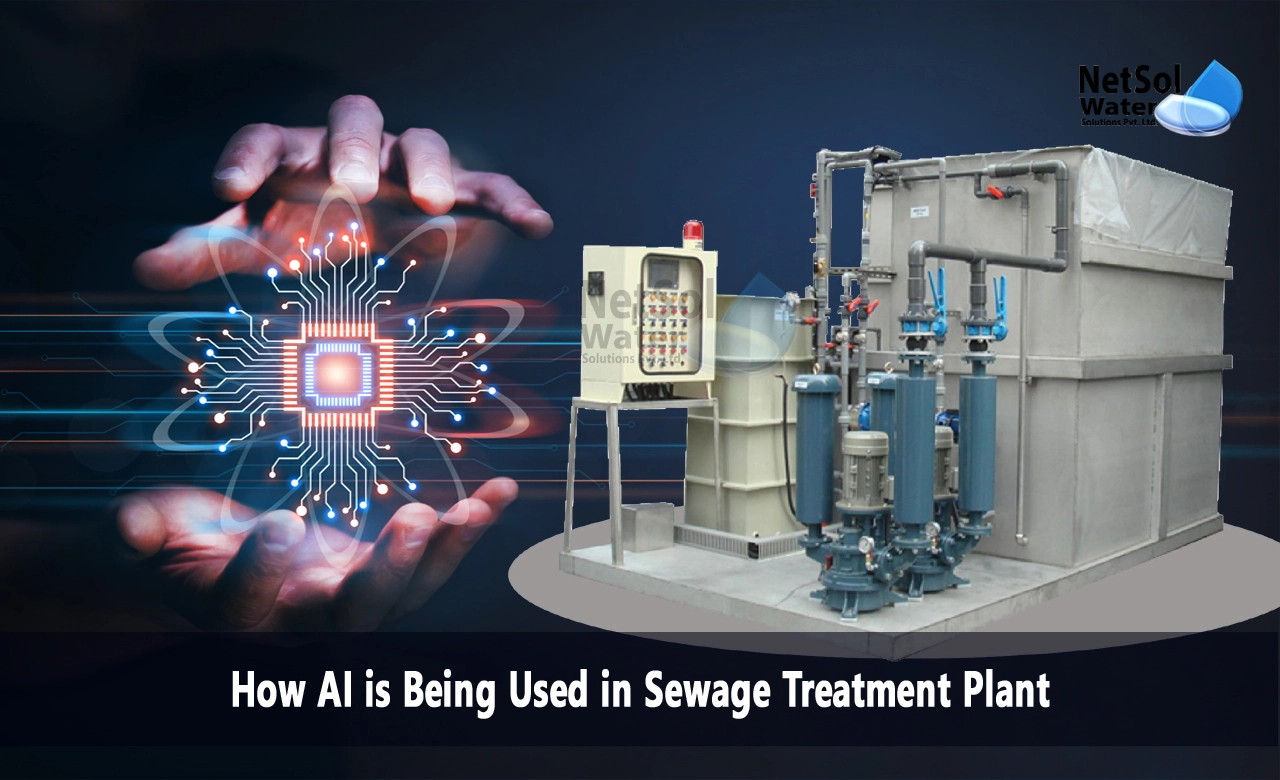How AI is Being Used in Sewage Treatment Plant?
Sewage treatment is a crucial process for protecting public health and the environment. It involves physically, biologically and chemically removing contaminants from wastewater before discharging it back into the environment. Traditional sewage treatment methods can be inefficient, costly and struggle to adapt to changing influent conditions. Implementing artificial intelligence (AI) solutions has the potential to significantly improve sewage treatment efficiency. This blog will examine the benefits of AI for sewage treatment and provide examples of promising AI applications across different stages of the sewage treatment process. Optimizing sewage treatment with AI solutions can increase capacity, lower operating costs, improve effluent quality, enhance process stability and assist operators.
Overview of Sewage Treatment Process
Conventional sewage treatment typically involves three main phases: primary, secondary and tertiary treatment. Primary treatment uses physical methods like screening and sedimentation to remove larger solids and debris. Secondary treatment relies on biological processes where microorganisms metabolize organic matter. Common methods include activated sludge, biofilm reactors and lagoons. Tertiary treatment polishes the effluent using additional filtration, nutrient removal, disinfection and other advanced techniques to meet regulatory discharge standards. While traditional sewage treatment processes are well-established, they lack flexibility to deal with variable influent characteristics, are prone to stability issues and have restricted control capabilities. Implementing AI-based solutions can help overcome these limitations.
AI for Improved Monitoring and Control
Many sewage treatment plants still rely on manual sampling and testing to monitor water quality. AI-enabled sensors and online analyzers can provide continuous data on critical process parameters like organic matter, nutrients and suspended solids. This enables real-time monitoring and allows for earlier detection of any developing issues before they escalate. Data analytics techniques like machine learning can spot trends and predict future influent characteristics. This allows for more proactive and preventive process adjustments.
AI can also enhance automation and control of treatment operations like aeration, chemical dosing, sludge wasting, and recirculation pumping. Adaptive algorithms can optimize these processes dynamically, improving stability, efficiency, and performance. For example, AI-based aeration control systems can adjust airflow based on changing conditions to minimize energy use. Computer vision techniques can automate visual inspections for better asset management. Chatbots can provide operators support and expertise knowledge to improve decision-making.
AI for Fault and Anomaly Detection
Sewage treatment plants contain many interconnected processes that can be prone to equipment faults and process anomalies. Detecting these early is crucial to avoid regulatory violations, effluent quality deterioration or even plant failure. Traditional statistical process control methods have limitations. AI-based fault detection systems can autonomously analyze multiple sensor measurements and process parameters to identify anomalies or developing faults.
Deep learning approaches like convolutional neural networks excel at detecting defects and inconsistencies from visual inspections. This can identify issues like cracks, corrosion, fouling and improperly functioning equipment. Vibration monitoring combined with AI can detect mechanical faults in pumps, blowers and other rotating machinery. Natural language processing allows AI to parse status updates, operator logs and maintenance records to identify problems. In summary, AI-enabled condition monitoring and fault detection provides greater awareness of plant issues, before they escalate into major problems.
AI for Improved Maintenance and Decision Support
Sewage treatment infrastructure requires significant preventive and corrective maintenance. AI techniques like computer vision, vibration analysis and natural language processing allow for earlier fault detection, as discussed previously. This enables proactive maintenance before equipment fails completely. AI-driven maintenance management systems can then optimize staff and resources allocation. Machine learning algorithms can estimate asset lifespan and guide optimal replacement timing.
AI-powered decision support systems can enhance treatment plant operations and management. Big data analytics on historical process data enables evidence-driven decision making. AI assistants can provide context-aware guidance to staff by fusing real-time data with experiential knowledge. These tools can empower operators with system-wide visibility to make better decisions under variable conditions. Immersive operator training simulations using virtual/augmented reality and digital twins provide experiential learning opportunities. In summary, AI delivers actionable insights to plant personnel - improving asset utilization, operational efficiency and overall performance.
Conclusion
Implementing AI-driven solutions across sewage treatment processes unlocks major potential benefits. AI allows for smarter real-time monitoring, enhanced automation and control, improved fault/anomaly detection, superior maintenance practices and data-driven decision support. This enables more reliable, resilient, efficient and optimized sewage treatment infrastructure. While adopting AI involves challenges like data availability, technical integration and skills development, the long-term rewards are substantial. With proper planning and governance, AI can be a transformative force to upgrade sewage treatment to meet rising social and environmental demands.
Do you need an advice or assistance on selecting the best water and waste water treatment unit? We have solutions for all your problems!
Let us know your problem, our experts will make sure that it goes away.
For an assistance or related query,
Call on +91-965-060-8473 Or write us at enquiry@netsolwater.com



